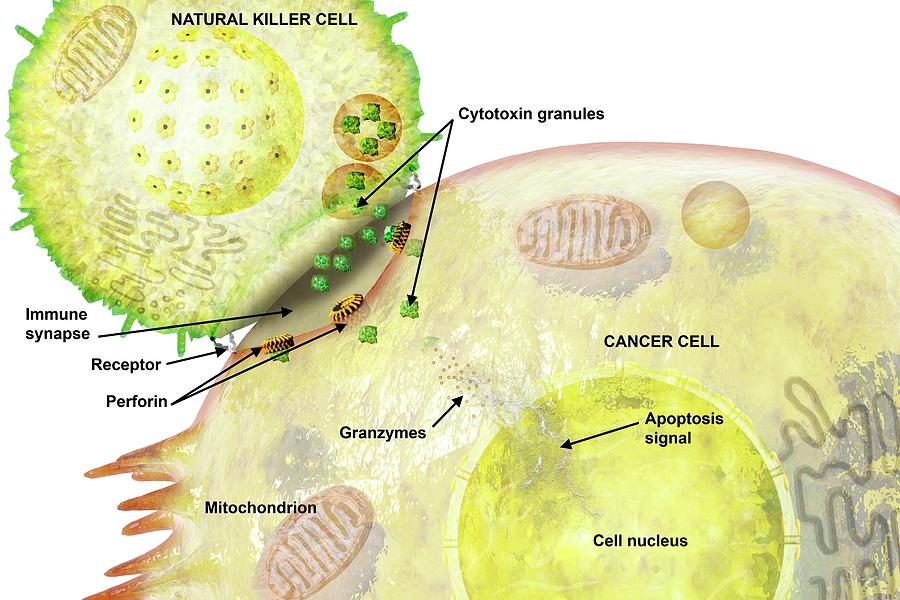Research topics for the Copik Lab:
- Innovation of methods for adoptive NK cell therapy with PM-particle platform
- Preclinical evaluation of particle expanded NK cells for treatment of leukemia and ovarian cancer in NSG murine model (collaboration with Dr. Altomare)
- Development of clinical treatment methods of AML (collaboration with Dean Lee, MD. Ph.D. at Nationwide Children’s and Ahmed Zakari at Florida Hospital Cancer Institute) and ovarian cancer (collaboration with Dr. Dean Lee and Dr. John Hays, MD. Ph.D. at OSU James Cancer Center)
- Better understanding of NK cell biology to improve potency for killing tumors
- Interplay with other immune cell populations
- Metabolic reprogramming to overcome hypoxia
- Molecular basis for the selective targeting of malignant cells
- Methods to increase the cytotoxicity of NK cells against tumor cells
- Therapeutic strategies to improve NK cells for cancer immunotherapy (e.g. combination therapies with drugs, oncolytic viruses, photodynamic therapy, etc.) (collaborators: Dr. Annette Khaled, Dr. Griff Parks, and Dr. Andre Gesquiere)
Other early-stage projects:
- NK cell in anti-viral response
Cancers being actively studied with NK cell therapy:
- Leukemia
- Ovarian
- Breast
- Melanoma
- Lung
- Neuroblastoma
Other publicity:
- UCF Medical Researchers Earn Grants for Innovative Approaches to Breast Cancer
- UCF collaborates on breakthrough in fighting cancer
- UCF “Beefing Up” Natural Killer Cells to Stop Cancer
- UCF Researcher’s Natural Killer Cell Therapy In Trials for Treating COVID-19
- Cancer-fighting Technology Developed at UCF Licensed to French Pharmaceutical Giant
- Natural Killer Cells May Open Lifesaving Cancer Treatments to More Patients
- New technology that increases Natural Killer cells to stop cancers gets licensed
- Nanoparticle Activates Natural Killer Cells to Replicate, Then Eat Cancer Cells
- Natural Killer Cell Technology to Stop Cancer Gets Licensed, On Way to Clinical Trials
- Grant Assists Burnett Researcher’s Quest For Leukemia’s “Natural Killer”
- State Cancer Event Features Med School Research
Collaborators:
- Deborah A. Altomare – UCF; Dr. Altomare’s Lab Website
- Annette Khaled – UCF
- Griff Parks – UCF
- Dean A. Lee – Nationwide Children’s Hospital, Columbus, OH
- John L. Hays – Ohio State University, Columbus, OH
- Ahmed Zakari, MD – Florida Hospital Cancer Institute
- Qun (Treen) Huo – UCF
- Andre Gesquiere – UCF

An NK cell targeting a cancer cell. Natural Killer cells are a type of white blood cell (lymphocyte) and play a key role in the immune system. Upon recognizing a target, the NK cell binds to the cancer cell and releases perforin proteins that create pores in the cell membrane. Through these pores, cytotoxic granules are delivered into the target cell, releasing granzymes that trigger programmed cell death (apoptosis).